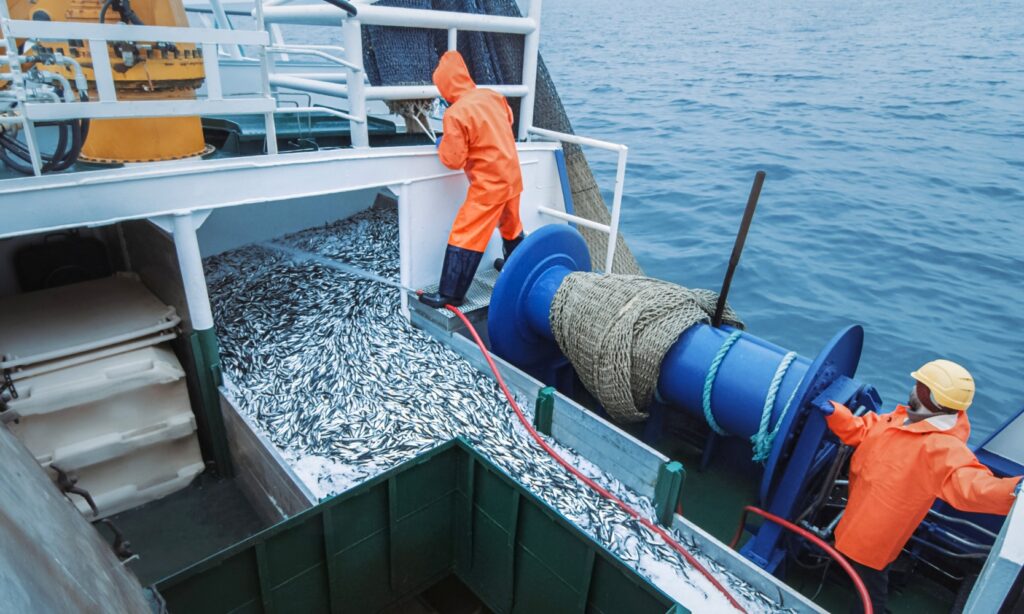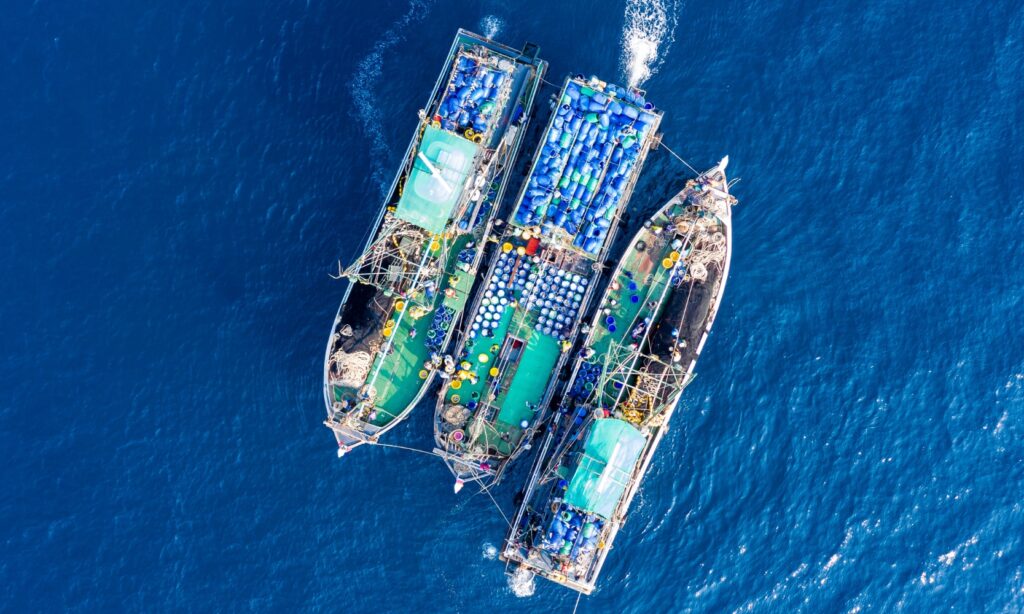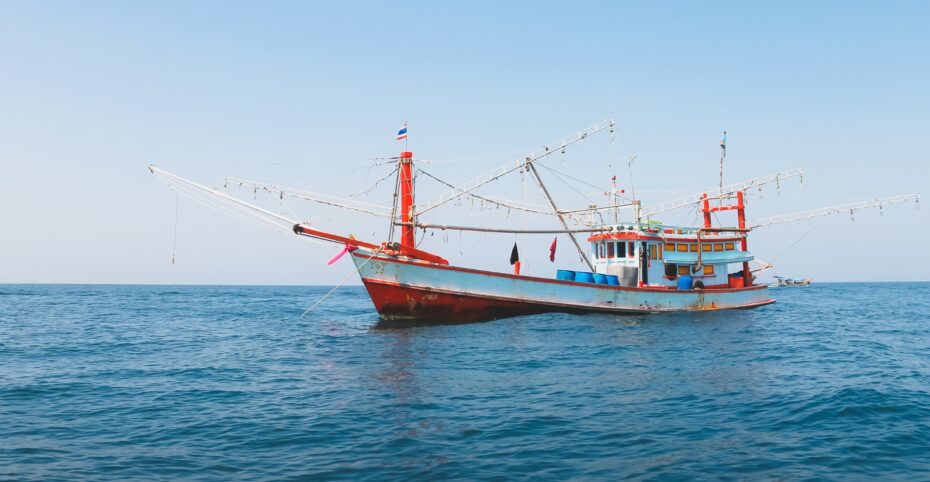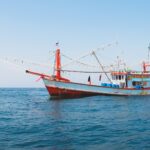The recent Chevron ruling Supreme Court decision struck down a critical 40-year precedent in the commercial fishing industry. Initially allowing expert federal agencies to ensure compliant fishing practices by onboarding fishery boats for monitoring, the Supreme Court’s overturn in an appeal creates dangerous environmental and public health consequences.
Learn more about the Chevron case, the negative impacts of this overruling, and what we can do to prevent the related risks involved with this decision.
What is the Chevron Deference Case?
The Chevron deference case was a 1984 Supreme Court case (Chevron U.S.A. vs. Natural Resources Defense Council) where Rhode Island and New Jersey-based herring fishermen filed a lawsuit to object to the estimated daily $710 expenses charged for federal agency commercial fishing monitoring.
The Chevron case was brought on by their company, Seafreeze Ltd., arguing they shouldn’t be responsible for paying their observer fees. The Supreme Court ruled unanimously 6-0 in favor of the NRDC, stating commercial fisheries must defer to federal agencies, like the EPA, for responsible interpretations of federal statutes—known as the Chevron deference (doctrine).
Why the Overturned Chevron Ruling Supreme Court Causes Severe Environmental & Public Health Consequences

On June 28th, 2024, the Supreme Court overruled the 40-year Chevron doctrine after an appeal, stating commercial fisheries should now be responsible for interpreting federal fishing laws instead of expert federal agencies.
This recent overturn has caused widespread pushback from environmentalists, government officials, and the public due to the severe consequences involved in this decision.
Self-Regulation Lacks Accountability from Expert Federal Environmental Agencies
Letting commercial fisheries self-regulate responsible fishing practices poses immense accountability risks without third-party monitoring. Current federal statutes have ambiguous language, and fishing companies don’t have the legal or environmental protection expertise to interpret the law accurately.
These can cause various risks, including overfishing, harmful animal welfare, and increased illegal food trade, for corporate profitability—which federal agencies cannot track who would be accountable for these unlawful practices without onboarding boats and monitoring.
Imposes Major Conservation Risks From Commercial Overfishing
When the Supreme Court initially ruled in favor of the NRDC in 1984, it enacted the
Magnuson-Stevens Act. This legislation set catch limits to prevent overfishing with government-appointed inspectors to onboard commercial fishery boats for compliance.
This recent overturn now allows fisheries to be responsible for upholding these catch limits themselves. The overruling undermines the scientific and technical expertise of federal environmental agencies because it lets fishing boat owners determine their judgment of the law.
If they surpass pre-determined fishing catch limits, intentionally or not, it can cause widespread overfishing and conservation consequences.
Creates Extreme Environmental & Public Health Hazards
If massive industry overfishing occurs from this overturn, it creates serious environmental and public health hazards. These include a depleted food supply, water pollution, and contaminated seafood from illegal fishing practices.
With global seafood consumption increasing and studies showing it to rapidly grow 80% by 2050, creating a sustainable commercial seafood industry is crucial now, more than ever.
What We Can Do About the Supreme Court’s Overturn of Chevron v. Natural Resources Defense Council to Protect the Public & Aquatic Ecosystems

While the Supreme Court’s decision to overturn the Chevron doctrine may seem daunting, we can still take action to protect public health and our aquatic ecosystems.
Modernize Existing Commercial Fishing Regulations to Prevent Inaccurate Interpretations
Updating the current ambiguous language of federal commercial fishing statutes leaves no room for wrongful interpretation. Modernizing existing legislation to understandable text upholds necessary environmental standards for fisheries to follow clearly.
Increase Transparency Requirements for Commercial Fisheries for Independent Public Review
While federal agencies cannot onboard commercial fishery boats for monitoring anymore, government officials must create new legislation to increase transparency for independent offsite review. This disclosure creates proper accountability for fisheries with financial penalties if they collect the data fisheries provide and it shows unlawful fishing practices.
That way, corporate special interests aren’t prioritized over environmental and public protection.
Support Aquatic Conservation Groups & Lawmakers to Lobby for Stronger Legal Protection Measures
In addition to government officials strengthening commercial fishery law, the public can become involved. You can donate or volunteer with aquatic conservation groups and non-profit organizations to help their lobbying efforts and prevent the risks involved with the overturned Chevron case.
If you can’t donate or volunteer, you can also support Senator Warren’s Stop Corporate Act by sharing it online via social media within your networks. It raises public awareness and increases political pressures to help block corporations from making legal and environmental-related decisions in commercial fishing.
Secure Sustainable Commercial Fishing Practices with SIAA: How You Can Make a Difference
Creating a sustainable commercial fishing industry is possible, but we need your help.
At SIAA, we partner with the Federation of European Aquaculture Producers (FEAP) and other leaders in the industry in the U.S. and abroad to educate policymakers and the public on environmentally-aligned commercial fishery practices.
Donating to SIAA helps fund our lobbying efforts for stronger legal measures while supporting the commercial fishing industry for ethically-oriented economic growth.
Learn more about our causes or become an SIAA member to secure a sustainable future in seafood production today.





